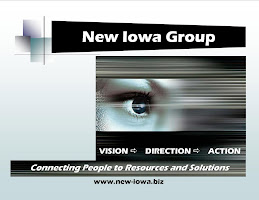 By Mary Gottschalk
By Mary Gottschalk
Networking is a bit like flossing your teeth. You know you should do it every day, but often you don't start until you have a crisis on your hands.
Networking can be useful as a crisis tool for finding the next job or getting a referral. But beware. There's a subtle psychological shift in the balance of power between you and your contact if the purpose of the meeting is to get a job. You go into the meeting needing something and wishing you didn't. Your contact knows he is expected to deliver a job lead, a referral or at least a good idea.
This situation can be awkward. It makes sense to present what you think your contact should know about you, what you think will be most impressive. But whether it works has as much or more to do with a contact's ability to provide a relevant job lead or referral as to the effectiveness of your presentation. And if that contact isn't in a position to offer something, he may try to bring the conversation to a close, to relieve discomfort and avoid creating false hope.
The odds are high that you will walk away from such meetings discouraged, something you don't need if you're out of a job. Even worse, a lot of valuable information - valuable to your contact as well as to you - never gets communicated.
An alternative approach is based on the notion that people love to give advice. Don't say that you're looking for a job, even if you are. Instead, explain that you're exploring your career options ... that you want to learn what other jobs or careers your skills might be suited to ... that you don't plan to make any decisions until you have more information.
That approach takes much of the pressure off, if only because both people go into the meeting expecting nothing more than an interesting conversation. You can present a more honest picture of yourself and explore the career implications of your weaknesses as well as your strengths. The format leaves lots of room for a contact to make suggestions and share personal experiences. It allows him to ask what you think about "X" or how you'd handle "Y," thus learning about you in ways that might never have come up if the purpose of the meeting was to "sell" what you assume are your most important skills.
Because it's a dialogue, a contact will feel freer to talk about opportunities in her firm or industry, long-term opportunities even if they are not available on your current time frame. Because it's a dialogue, you can ask probing questions about the pros and cons of her job or profession, the how and why of her firm's internal decision-making and its biggest challenges. She can see first-hand how your mind works. You get more honest answers. And if your contact sees you as interesting rather than needy, she is far more likely to make referrals.
A significant fringe benefit of this approach - a critical one when you actually need a job - is that you rarely walk away feeling disappointed or discouraged.
The best fringe benefit is that interesting conversations lead to interesting job offers, often from the people you really only approached for advice.
Mary Gottschalk is the owner of MCG Strategic Services, which provides financial services to nonprofit organizations.










